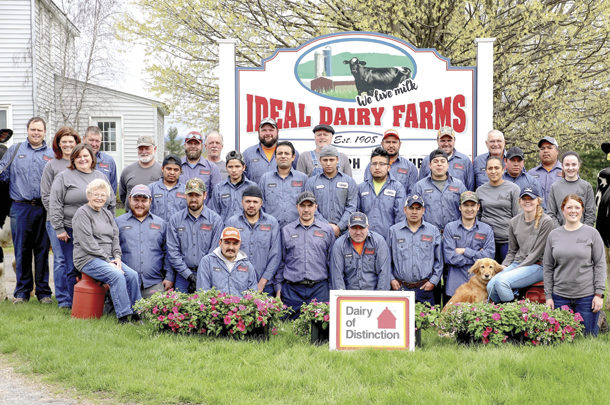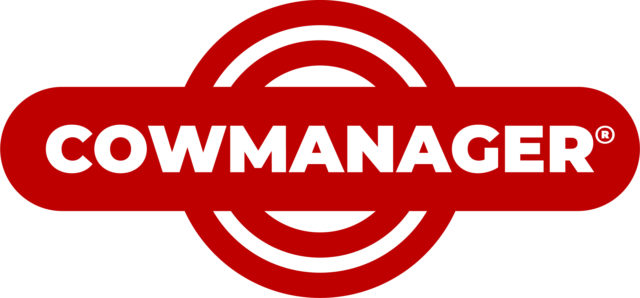Farm labor used to be about hiring the next person to help when the business was short-handed, but that approach doesn’t work now, and it also won’t in the future, as hiring and retaining labor becomes increasingly competitive.
Today’s leading farm managers see human resources as the most vital part of sustained success. Without the right people, nothing else can be accomplished. The future belongs to farmers who take a strategic approach to hiring and developing high-performing team members.
Two leading agricultural workforce managers share their perspectives, including:
- Nate Richard, Owner, Scattered Acres Farms and Roaring Creek Egg Farms in Pennsylvania
Scattered Acres Farms is a diversified family farming operation consisting of grain, vegetable and livestock production.
- Crystal Grimaldi, Office and HR Manager at Ideal Dairy Farms in New York state, owned and operated by the Dickinson, Getty and Grimaldi families
Ideal Dairy (Ideal Dairy Farms) strives to sustain a long-term viable business, producing high-quality milk, through exceptional animal husbandry; valuing employee contributions and teamwork; promoting stewardship of our soil and water resources, and striving to develop a positive view of agriculture within our community.
Who manages HR on your farm, and what qualities are important for this role?
RICHARD: We’re transitioning HR on our farm to a full-time employee, Chris Rarig, who has 25 years of experience working in a manufacturing environment. He’s my cousin, so he’s familiar with the business. He brings in professional experience from working in a large corporate environment and with putting policies in place. For a while, our culture was loose. There are always things going on in a farm and we needed to tie up loose ends, so we started this by implementing an employee handbook that details our policies and procedures.
 Nate Richard (left), Owner, and Chris Rarig (right), HR Manager, of Scattered Acres Farms and Roaring Egg Creek Farms in Pennsylvania. Photo provided Scattered Acres Farms.
Nate Richard (left), Owner, and Chris Rarig (right), HR Manager, of Scattered Acres Farms and Roaring Egg Creek Farms in Pennsylvania. Photo provided Scattered Acres Farms.The business has grown from two employees with my dad and I to over 25. We knew adding organization and structure was the next step. Chris has the experience and personality to serve in this role. He’s steady, respectful, thoughtful, and willing to listen. Employees want to be heard. Having an HR manager who develops a relationship with employees creates trust for them to express their concerns and offers a step in the middle between the owners.
GRIMALDI: I manage most of the HR responsibilities on our farm. I find it is important to be extremely organized, to employ systems to track and facilitate benefits, including health insurance and vacation time, and to be up to date on changes in labor law and compliance requirements.
What are you investing in (time or money) to ensure access to and retention of employees in the future?
RICHARD: We’re starting to get our head wrapped around what kind of trainings we need to offer. We offer benefits – a 401K program, health insurance, and paid time off. Good benefits help retain employees. We need to invest more in our brand and market ourselves on social media. Facebook (Scattered Acres Farms) and Instagram help build our public relations, which will help us attract new employees. We have two businesses. With crops we have limited work on the weekends; however, egg production is more like dairy where we work through the weekend and every holiday. All employees have time off, and we reward with time off. Employees receive 10 paid days off if they’ve been with us for eight years, and we’re looking at adding to this program.
GRIMALDI: There are so many “right ways” to approach engaging employees for retention. On our farm we focus on creating a work environment and farm community that we hope encourages our team members to stay with us for the long haul.
- We provide housing for many of our employees. We do our best to be sure the housing is of good quality and provides a comfortable environment for the families that live there. When something is broken, we fix it.
- We are always working to keep our compensation competitive and equitable across all team members, tied to performance, experience, and responsibilities.
- We strive to sustain a fun work environment and keep lines of communication open between farm owners and team members.
- Proper training, well-developed protocols, clear expectations, and regular feedback all promote a positive work environment and an engaged team.
- We try to celebrate frequently as a team. Typically our “celebrations” are simple: food, drink, and some down time to enjoy one another’s company and build relationships.
- Though this year was quite different, in the past we regularly hosted interns. Offering internships gives us a great opportunity to meet the future of our industry, share our experience, and learn what motivates young people today. Interns always seem to add fresh excitement and we have been very lucky to have several return and become full-time key team members.
- When it comes to access to future employees, reputation is extremely important and should be considered at all times. People want to work where they will be treated fairly, compensated competitively, valued, and respected. A poor reputation (whether based in reality, exaggerated or somewhere in between) can be extremely detrimental to a farm’s opportunity to recruit new talent.
- Lastly, we have invested in creating a modern dairy positioned to be sustainable for future viability, in the hopes that talented and dedicated people will continue to want to work with us.
What are your biggest HR concerns, and what are your strategies to address these?
RICHARD: Right now we’re hiring someone to help manage HR. We have a great team, and we want to stay competitive with compensation and benefits. We want to continue to keep our employees on the job, happy, interested, and growing in the business.
GRIMALDI: One of my biggest HR concerns is maintaining a stable workforce. American culture is unbelievably different than it was 30 or 50 years ago. Young people today want very different things from their life’s work than their parents and grandparents did. While agricultural advancement and innovation have exponentially changed the way we farm today, there are many things that have not changed. The nature of farming still involves some hard manual labor, and sometimes long hours in unpredictable weather conditions. As an industry we struggle to fit into a 40-hour week and get all the work done.
Our slim margins make it challenging to compete with other industries that have the flexibility to offer shorter work weeks and more expansive compensation packages. As labor regulations continue to evolve, and people continue to value their free time as much as their hourly pay, agriculture will struggle to recruit new talent. To be viable I believe we will have to get creative and rethink our age-old strategies for structuring labor and the hours per week we ask our team members to work.
Our approach to addressing the ever-rising cost of labor has historically been to be as cost-efficient as possible, expanding production to cover the increased cost of providing for our team members. We strongly value our team and their commitment to us. We always hope to compensate them well and provide great benefits. But there is a cost to maintaining competitive pay. To stay in business and continue farming we have to be able to cover our costs. In recent years we have increased wages, worked toward reducing hours, leveraged our assets to expand, and milked more cows, to be able to afford the increased costs.
What are the future challenges and opportunities of HR in agriculture?
RICHARD: It’s getting harder and harder to find people who want to work in “dirty” jobs with livestock. The pool of people with agricultural backgrounds is shrinking. Where we are now versus five years ago, the pool has shrank. When we first advertised for positions at the new egg farm, we had around 40 applicants for all positions and now we may have three or four. With the labor pool shrinking, we have to be creative in how we attract people. We have implemented technology, like a potato sorting machine and robotic egg processing to create more skilled jobs.
GRIMALDI: Communication is a struggle for me on our farm. Often we are dealing with a language barrier that further exacerbates the already challenging task of keeping everyone up to date. Whether we are changing policies to address labor law updates, adding new procedures as was necessary in response to COVID-19, or making protocol changes on the farm, it is important that everyone understands the “why” and the context of those changes. It is often challenging to disseminate information effectively across our entire team.
I find we are often in need of a skilled translator for employee notices, employee handbook updates, annual health insurance and retirement plan descriptions, completing payroll enrollment documents, explaining payroll deductions, and even just to effectively provide quality feedback, and receive feedback in a performance review. With limited Spanish-speaking abilities, these important fundamentals of HR are a big challenge for me on our farm.
As labor regulations tighten, where will your new employees come from?
RICHARD: Our workforce is all local. We have tried to position ourselves as a more skilled workforce.
GRIMALDI: We hope to retain the great group of people we have today. We will continue to host interns and rely heavily on word of mouth and the recommendations of those who work beside us. We have also been very lucky to have recruited great, young, hardworking people from our local community, and we hope this continues as well.
When did you begin taking a more strategic approach to staffing your business?
RICHARD: When we first built the egg farm we started from scratch and hired Richard Stup, an ag workforce specialist, in 2016 to help us build our farm culture.
GRIMALDI: We completed a large expansion in 2017. Much of our decision to expand was tied to the assumption that labor costs would continue to increase at a faster rate and that we would be faced with a very different and more challenging workforce environment during our lifetimes. When we expanded in 2017, we wanted our team members to be able to work fewer hours for about the same or slightly higher wages. The efficiencies we gained with our expansion allowed us to do that.
How have your sources of employees changed over time? How are you positioning your business to attract people five years from now?
RICHARD: Our employee source is the same. We live in a rural area. We want to create an image of a farm that’s a great place to work with competitive jobs and skilled labor.
GRIMALDI: In recent years we have been lucky to recruit some great young people from local agriculture colleges. Prior to three to four years ago, we didn’t have much of that. We recognize the trajectory is headed towards team members working fewer hours, either due to their preferences or mandated by labor law. As that continues, we are focusing on being as efficient and profitable as possible so we can sustain flexibility in scheduling and competitive compensation for our team members.
Why is a focus on HR important to your farm?
RICHARD: Our employees are the lifeblood of our business. Without a good, solid, focused group of people, we’re not going to accomplish our goals. Employees are one of the most important pieces of our farm.
GRIMALDI: HR is important because our people are our most valuable resource. Our people must feel engaged and fulfilled in the value they add to the team or they won’t meet our expectations, and ultimately are not likely to remain a productive member of the team. One of the best things dairy managers can do is focus on creating a cohesive team.
HR plays such an important role in creating and maintaining a positive work environment and providing the resources and structures necessary to sustain an effective team. HR is an essential part of any farm, providing the support and tools necessary for team members to do their best work. Upholding fundamental best HR practices is critical; without them, culture and work environment suffers, and eventually a team will not be able to sustain any effective level of performance.
How are technology and analytics changing HR on the farm?
RICHARD: We use smartphones to clock in and out. We use Deputy – a cloud-based system to track time and accruals. We moved away from paper, and with the phone we now know at our fingertips how long our people are working. Deputy has automated the payroll process.
GRIMALDI: Technology changes at such a rapid pace these days and provides so many resources. There are lots of opportunities for technology to play a big role in HR in the future. Because farms are often located in remote areas and operate with unique schedules, I think virtual training could become a great resource for many farms.
Developments in analytics and robust software platforms have made it extremely easy to track and analyze data. We rarely make a decision in any area of the dairy without first considering the data. Having information so accessible makes a big difference as we weigh potential management changes.
How do you keep employees engaged and motivated?
RICHARD: Attitude plays such a key role. When you have solid leadership that sets goals and timelines, people are positive and encouraged. Don’t be afraid to reach out for help. Don’t be afraid to have a consultant look for opportunities to improve and to hire specialists for insight.
GRIMALDI: That is the million-dollar question and what HR is all about. Every team member is different. Some seek purpose, some compensation, good health insurance, a retirement plan, a particular schedule, to work with animals, a fascination with innovation and technology, or to work with great people. The opportunities for motivation are endless, but we hope all have a strong desire to be an essential member of the team and to share our values. It is no secret that money is not typically at the top of everyone’s list, but fair compensation is generally the ticket to ride, a starting point, an essential foundation.
From there most people will perform to expectations under the right environment and leadership. Connecting with team members is key to determine what engages them, what their strengths are, where they have room for improvement, and how you can help them grow. While many teams are forged in battle, connection and cohesiveness is often bonded during quieter and slower moments, when there is time to think clearly, listen, and share.
Anything else you would like to share with other farmers?
GRIMALDI: Start small. Start today. Keep improving. There are a lot of things in regard to HR and team engagement that we do not do perfectly, and many days don’t even do well. Each of us only have 24 hours in a day. There will always be far more things to think about, focus on, and work to get done, than can be accomplished; but we have a vision for how we know things should be in a perfect world on a perfect farm and we will keep working towards that. Every day.
This article appeared in PRO-DAIRY’s The Manager in November 2020. To learn more about Cornell CALS PRO-DAIRY program, visit PRO-DAIRY Cornell CALS.










